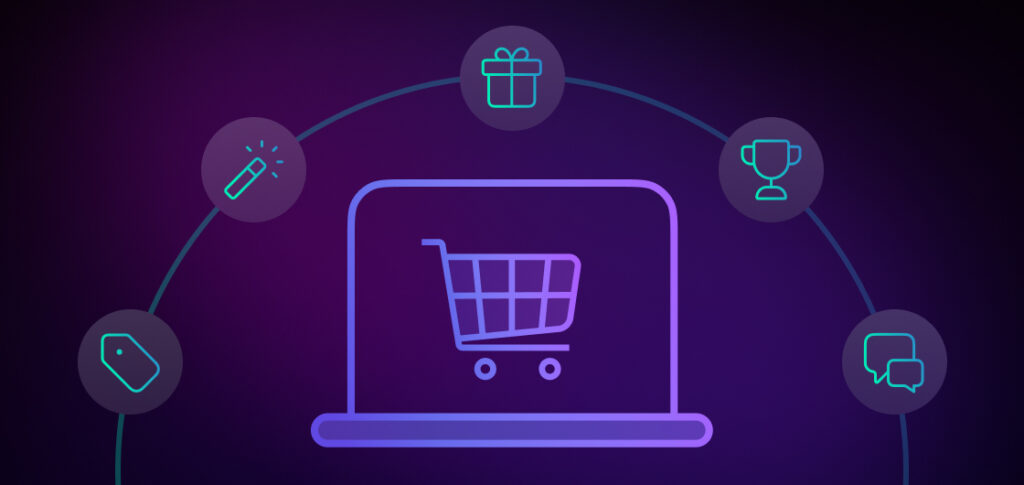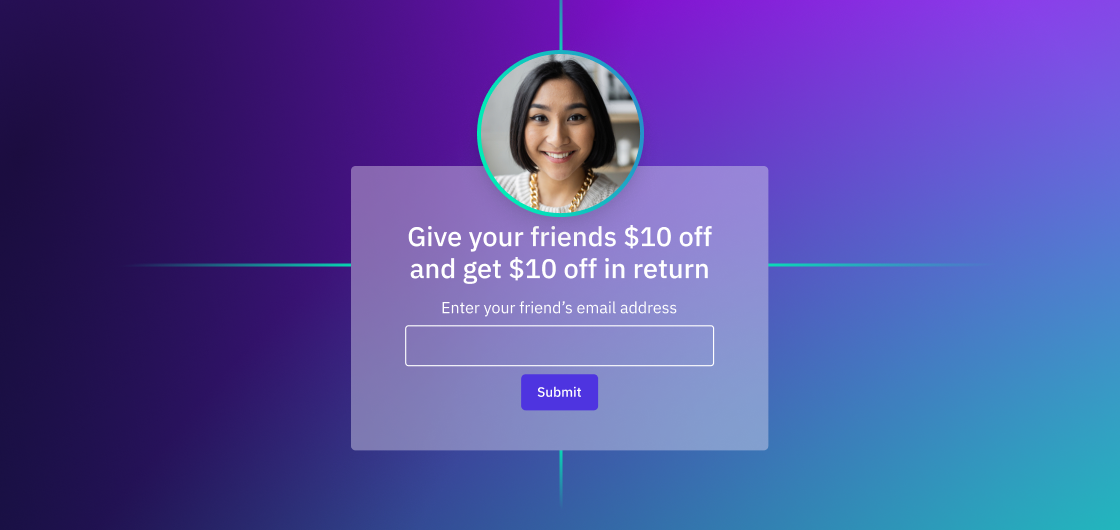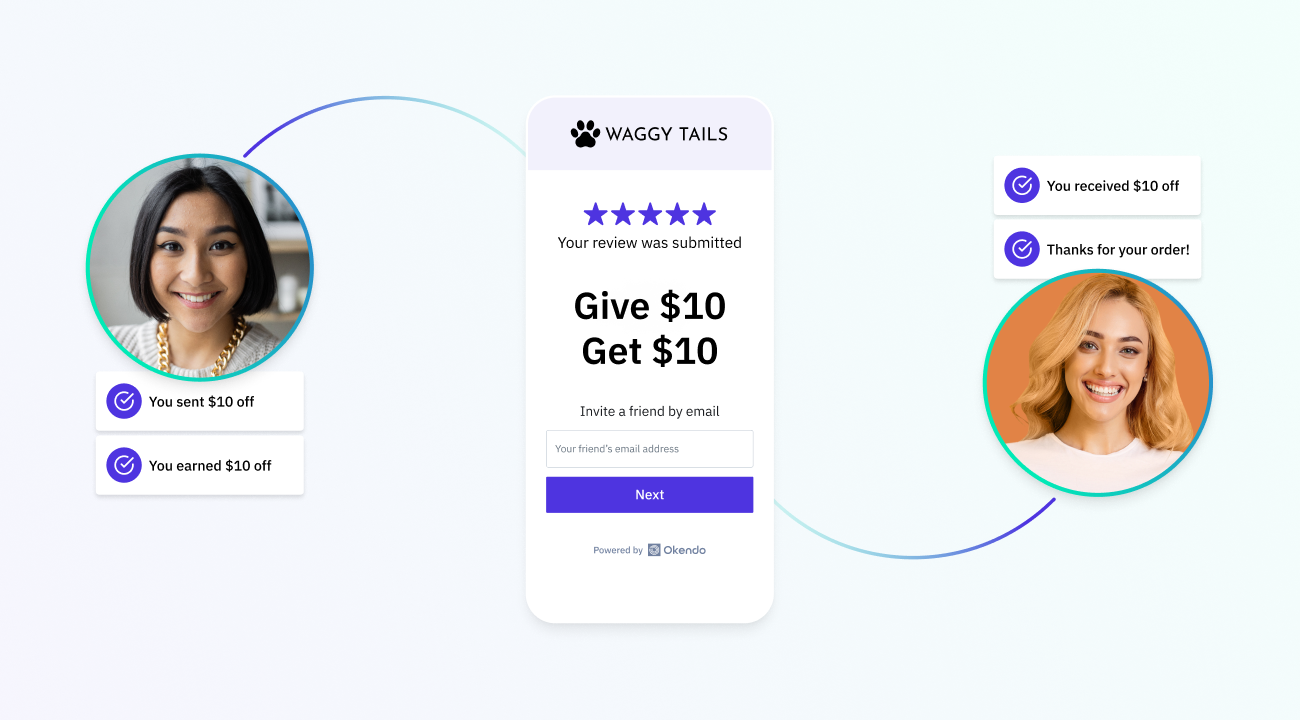
- Customer Experience
- Customer Loyalty
- Customer Marketing
- Customer Retention
- Ecommerce Marketing
- Loyalty
The Biggest Ecommerce Trends to Follow in 2025 (According to the Experts)
Megan Wenzl | Dec 2, 2024
Jul 18, 2023 | 6 minute read

Megan Wenzl
Content Marketing Manager
At a time of economic unpredictability, many consumers are being more discerning than ever before when it comes to how they spend their money. As a result, the DTC ecommerce space has become an increasingly competitive battleground for customer loyalty where brands are constantly looking for new ways to acquire customers.
And while the idea of customer referrals is far from new, in today’s hotly contested markets, having an attractive referral program can be just as crucial as offering a superior product.
But what exactly is a referral program, how does it work, and what makes it such an important strategy for any growing ecommerce brand to leverage in today’s environment? Let’s take a closer look.
A referral program is a marketing tool used to reward customers in exchange for recommending your brand to their family, friends, acquaintances and even followers on social media. This allows your business to tap into the power of brand advocacy without the need for costly paid sponsorships or traditional advertisements, making it easier for your brand to acquire and retain new customers.
A customer referral program works by sending out referral requests that offer attractive rewards in exchange for recommending your brand. You can ask any customer to join your referral program, but your most loyal customers are the ones who are most likely to refer a friend or family member. You can identify your loyal customers based on their purchase history or data obtained through reviews and surveys.
The referral sender, or the loyal customer, is provided with their own unique referral link to share with recipients. Once the customer’s referral recipient clicks the link that is shared, they receive an award, such as a percentage off their purchase. The recipient then makes their first purchase with the reward.
After the recipient makes the purchase, the referral sender also gets rewarded because their friend of family member made a purchase from your brand. This award applies to future purchases, which incentives the customer who referred your brand to purchase from you again. The repeat purchase helps increase their customer lifetime value.
This helps your brand acquire new customers, while keeping loyal customers happy, further strengthening customer relationships.

In order to determine whether a referral program might be right for your brand, it helps to first understand its various benefits, as well as how it compares to other marketing strategies in terms of overall cost and performance. Here are four specific reasons why your brand can profit from a referral program:
Let’s face it, you wouldn’t spend your brand’s time or money on any marketing strategy without expecting a healthy return on your investment. And it just so happens that referral marketing has been shown to produce a higher ROI than any other marketing channel. This is because in addition to being lower in cost when compared with traditional advertising and outreach campaigns, customer referral programs are also incredibly effective, boasting a 4X higher average conversion rate than other acquisition channels.
Of course, in order to see the positive impact of referrals on your customer acquisition, you’ll first need to ensure that customers are actually spreading the word about your brand. And while offering a high-quality product alongside a great purchasing experience is certainly important, most customers will take a little more convincing before they’re prepared to make a recommendation.
This is where the power of an incentive-based referral program comes into play. In addition to relieving some of the tension consumers face today, offering an easy way to obtain a discount or similar reward increases the chance of customers referring your brand to their friends and family. In fact, in our recently conducted loyalty and retention survey, we found that 70% of customers would be more likely to refer a brand if they received a reward.
In light of the current economic landscape, improving customer loyalty and retention is more important than ever. And in addition to providing consistently positive customer experiences across the customer journey, utilizing a referral program can help nurture your existing relationships with satisfied customers by rewarding their ongoing loyalty and advocacy for your brand.
It’s also worth noting that referred customers tend to be higher quality customers than those acquired through other channels, due to both their relationship to the loyal customer and their own ability to redeem a reward as part of the referral process. In fact, referred customers have been shown to have a 16% higher customer lifetime value (CLV) than non-referred customers.
Finally, between the low-cost of implementation, and relatively high ROIs and impact on acquisition, referral programs can simply be a great way to allocate your marketing budget and optimize overall spend. This is a particularly attractive benefit given the pressure on brand marketers to do more with fewer resources, and as C-suites pay closer attention to marketing performance.
But more than outperforming other channels in terms of conversion, the right referral program will give your brand an effective way to actually measure the performance of word-of-mouth marketing more broadly. This is often an absolute game-changer for marketing teams who already know the true power of customer referrals, but who previously had no clear way of quantifying their performance in the context of the marketing budget as a whole.
Indeed, implementing a referral program can bring numerous benefits to your business. By incentivizing your existing customers to refer others, you tap into a network of trusted relationships to build an even bigger community of loyal advocates.
As Greg Bauman, Director of Strategic Partnerships at the ecommerce brand building agency, AdQuadrant, says: “Referral programs not only drive new customers, but customers referred by their friends and family are more likely to become loyal customers of your brand in the future as well. It’s something we preach to our clients as a must have to optimize acquisition, and we can also use that data to better target new loyal customers in our paid media efforts.”
Of course, in today’s competitive business landscape, brands are searching for new ways to gain a significant edge. With their ability to acquire new customers for a lower cost, enhance customer engagement and boost satisfaction, referral programs empower you to create a virtuous cycle of growth and success for your brand.
Interested in learning more about the ins-and-outs of referral marketing, and how an incentive-based customer referral program works on the Okendo platform?
Read More: Referral Marketing: A Comprehensive Guide for Shopify Brands
Related articles
Ready to learn more?